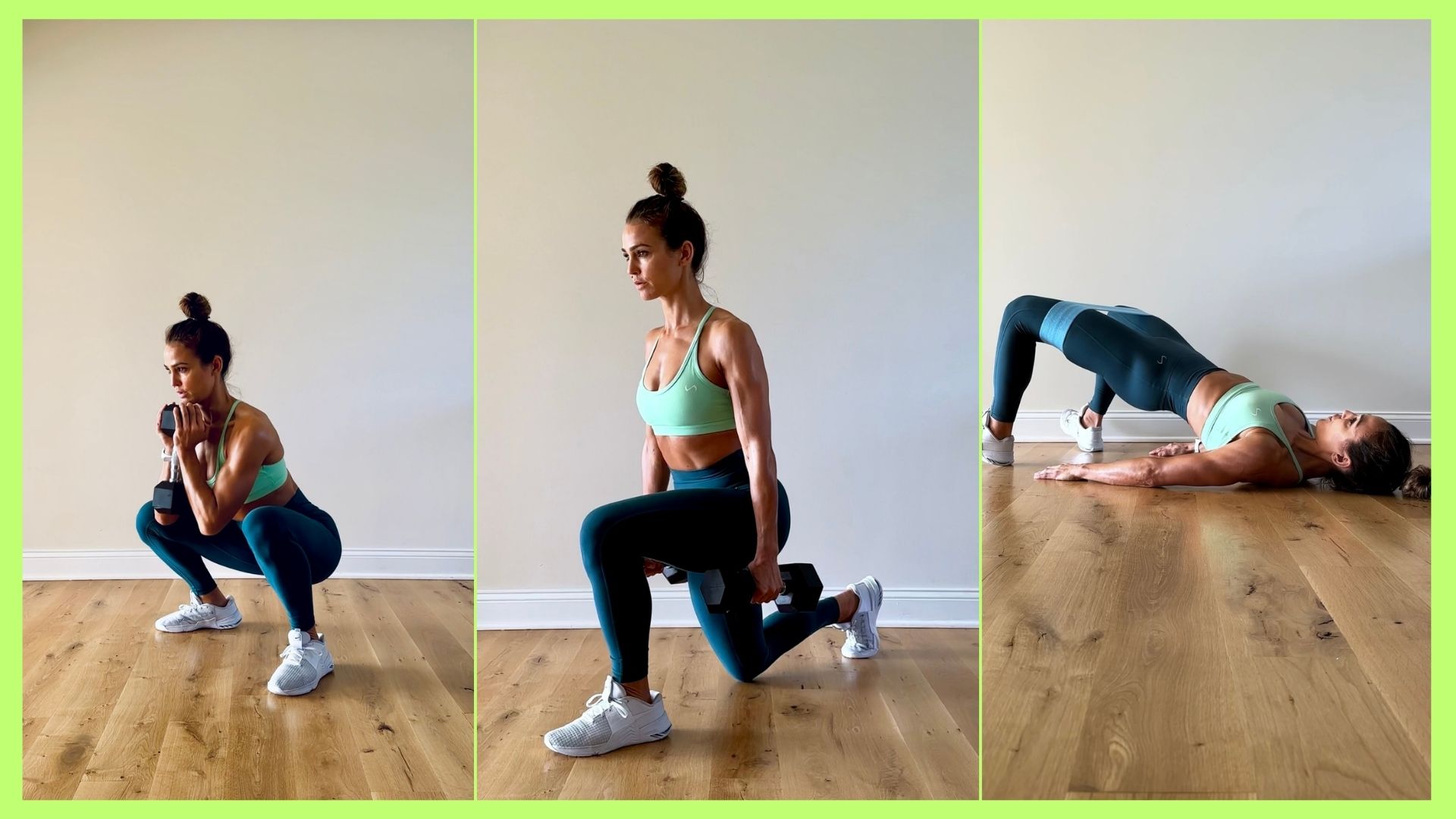
I love leg workouts; they hit some of the biggest muscles in the body and help you build functional strength.
But if you’re looking to work your lower body at home, which exercises should you prioritize?
I asked functional strength coach and ACE-certified personal trainer Melissa Kendter this very question, and she provided a five-move beginner leg session you can do pretty much anywhere with just a couple of dumbbells.
How to do Melissa Kendter’s leg workout
- Goblet squat 3x8-12
- Romanian deadlift 3x8-12
- Lateral squat 3x8-12
- Split squat 3x8-12
- Glute bridge 3x8-12
Perform the exercises listed above as straight sets. In practice, this means you’ll complete 8-12 goblet squats, rest for 60 seconds, then do another set of goblet squats.
Only when you’ve completed all three prescribed sets of one exercise can you move on to the next one.
1. Goblet squat
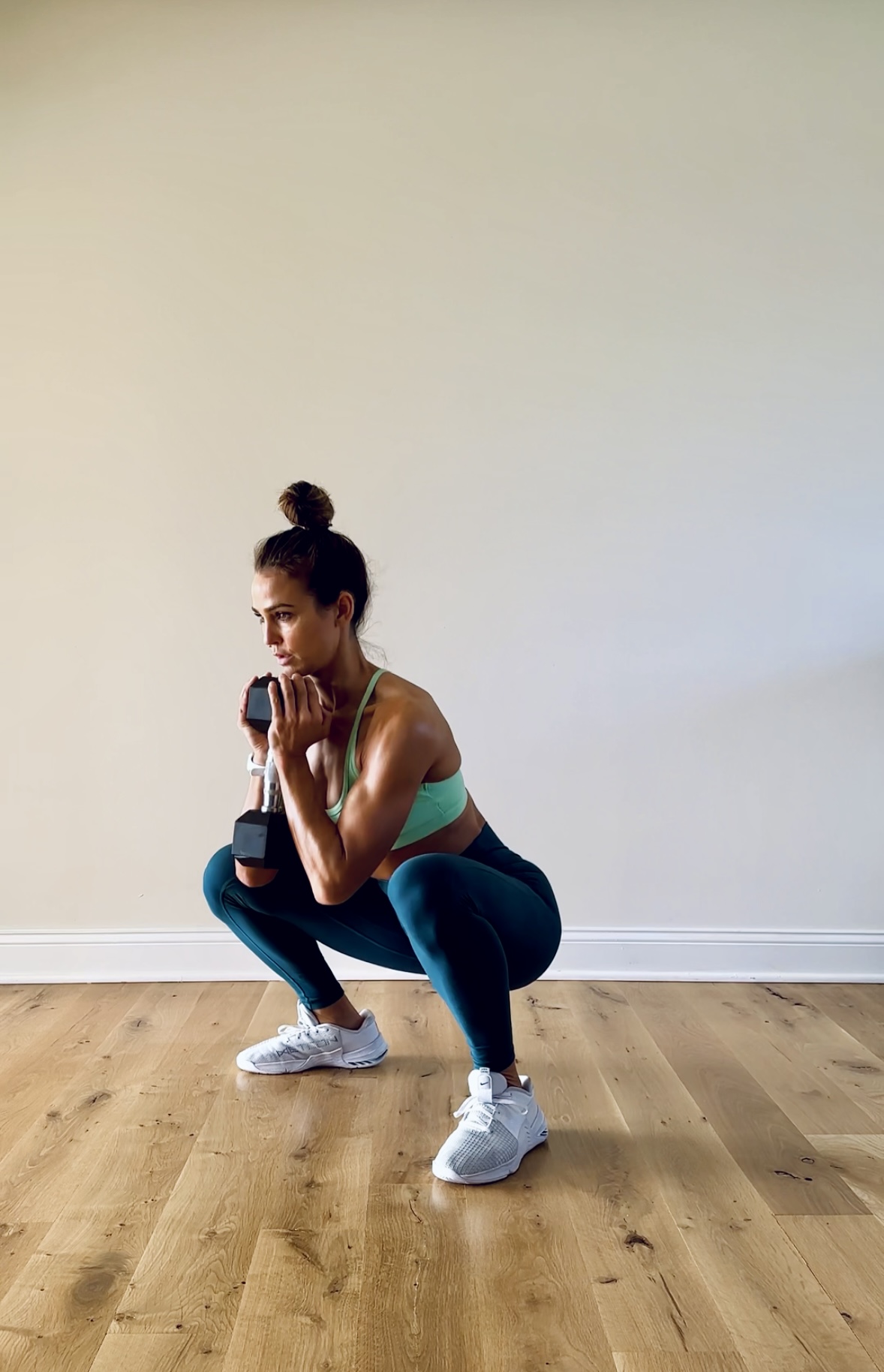
Sets: 3 Reps: 8-12 Rest: 60 seconds
- Get into a comfortable squat stance with your feet about hip-width apart and a slight bend in your knees. Hold the end of the dumbbell tight to your chest with your elbows facing down.
- Keeping the dumbbell or kettlebell at chest height, lower your hips by pushing them backwards then bending your knees. Keep your chest up and your spine neutral as you do this.
- Lower yourself as far as you can while keeping your chest up, pause briefly at the bottom, then push your feet into the ground to drive back up to the starting position.
Benefits of the goblet squat
"Goblet squats improve your lower-body strength, improve muscle mass, increase range of motion, reduce risk of injury and promote upright posture," Kendter explains.
To perfect your technique, she suggests imagining your pelvis is a bucket filled with water, which will spill if you don’t keep it level.
2. Romanian deadlift
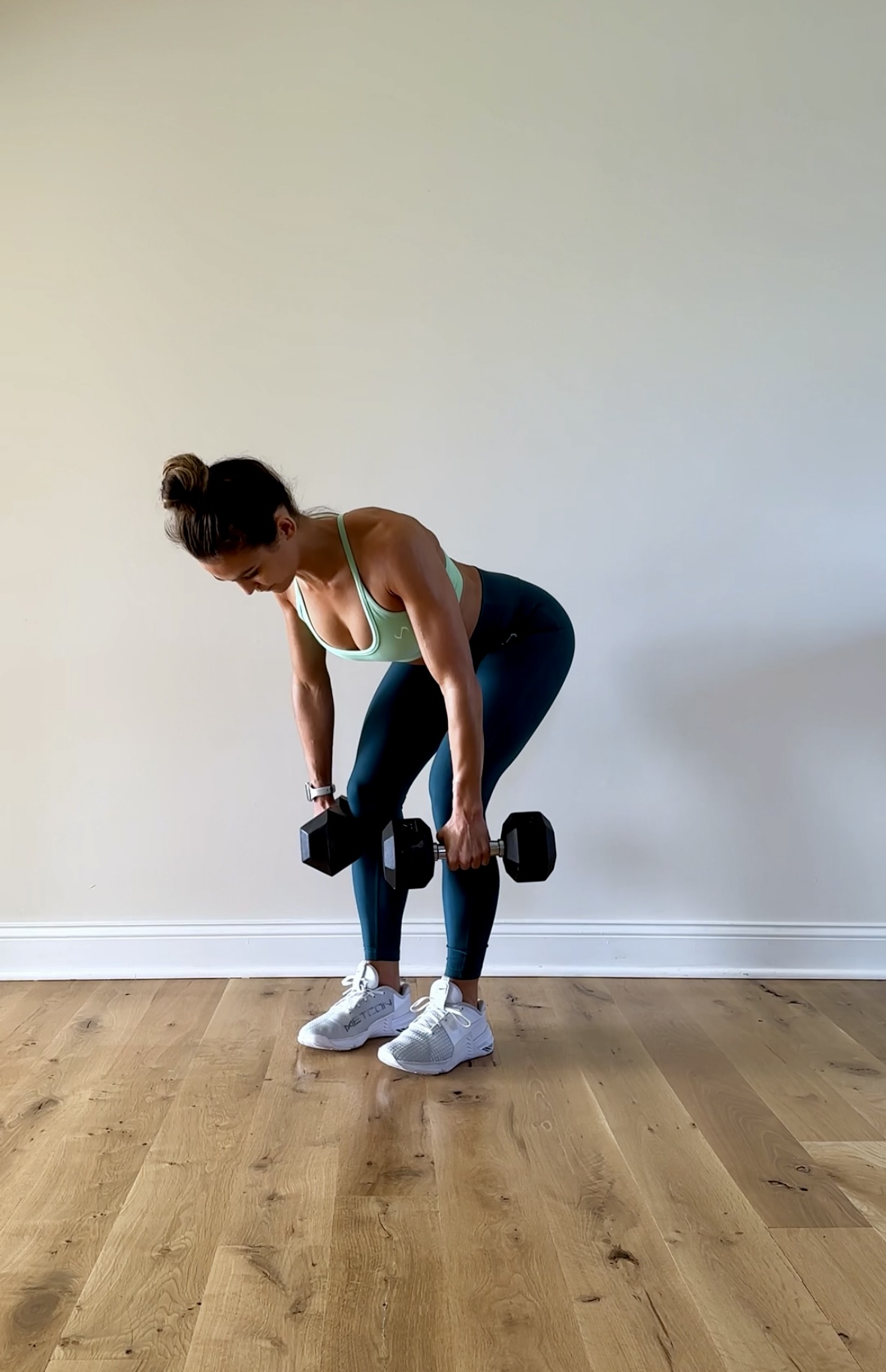
Sets: 3 Reps: 8-12 Rest: 60 seconds
- Stand with your feet hip-width apart and hold a dumbbell in each hand in front of your hips.
- Keeping your back flat, push your hips back to hinge forwards, allowing your knees to bend slightly.
- Lower the dumbbells down the front of your legs until they reach about shin-height, or until you feel a stretch in your hamstrings (the muscles running down the back of your thighs).
- From here, extend the knees and drive your hips forward while contracting the glutes (backside muscles) to return to the starting position.
Benefits of the Romanian deadlift
As well as strengthening your posterior chain (the muscles running down the back side of your body), the Romanian deadlift will also develop your core, according to Kendter.
As you grow stronger and more comfortable with this exercise, you can raise the weight of the dumbbells you use to increase the difficulty.
3. Lateral squat
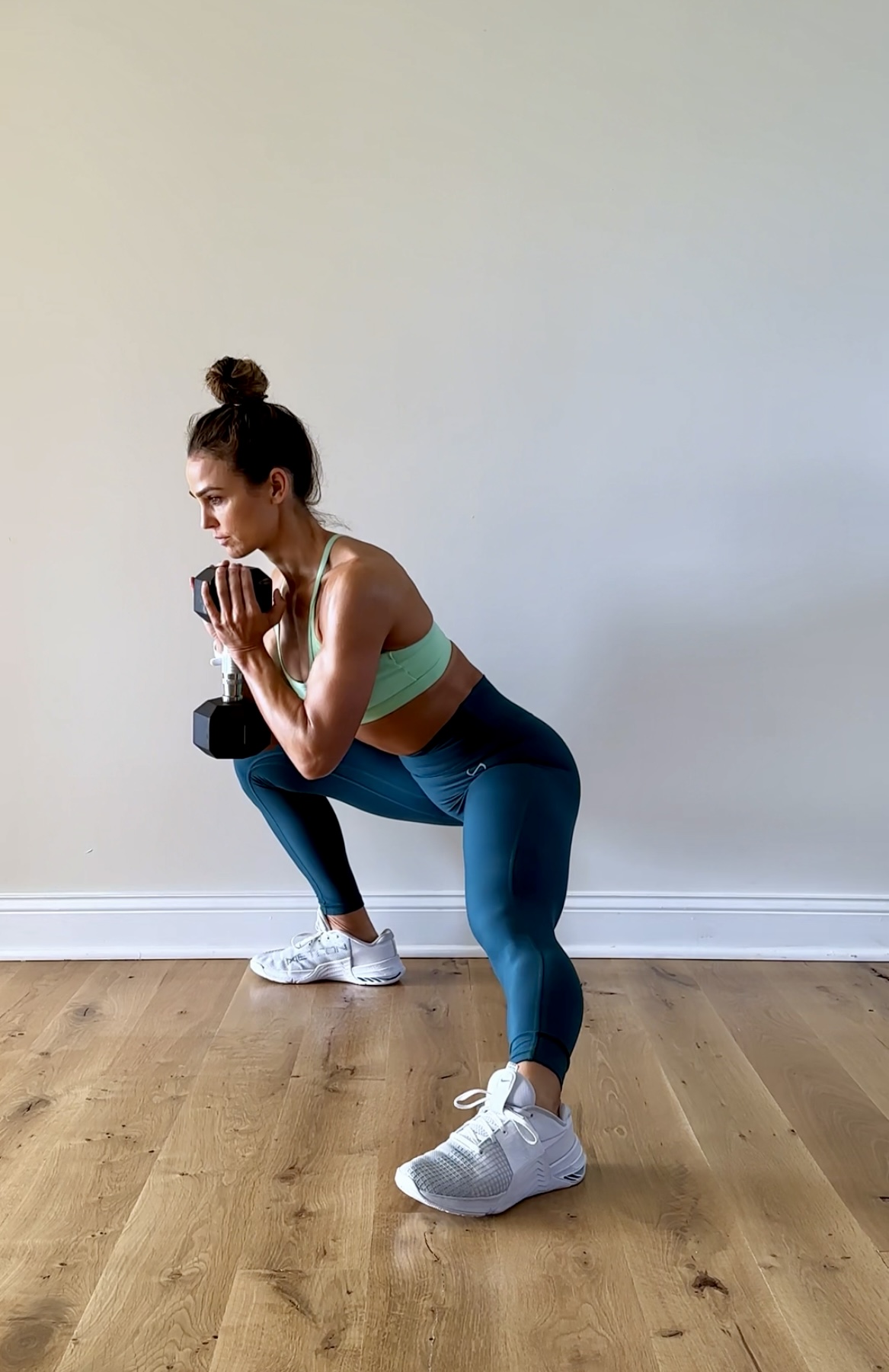
Sets: 3 Reps: 8-12 Rest: 60 seconds
- Start in a wide stance with your feet and toes facing forwards.
- Shift your weight into your right heel, push your hips back and bend your right knee while keeping your left leg straight. Try to lower your hips until your right thigh is parallel with the floor. You can bring your arms in front of you as a counter balance or clasp them at your chest.
- Drive through your right foot to return to the starting position. Pause at the top to squeeze your glutes then repeat on the other side.
Benefits of the lateral squat
The lateral squat is unique in this list because it challenges you to move your body from side-to-side, rather than up and down.
"It works in a different plane of motion, making it an extremely functional exercise that can improve mobility and flexibility in the hips and legs," says Kendter.
4. Split squat
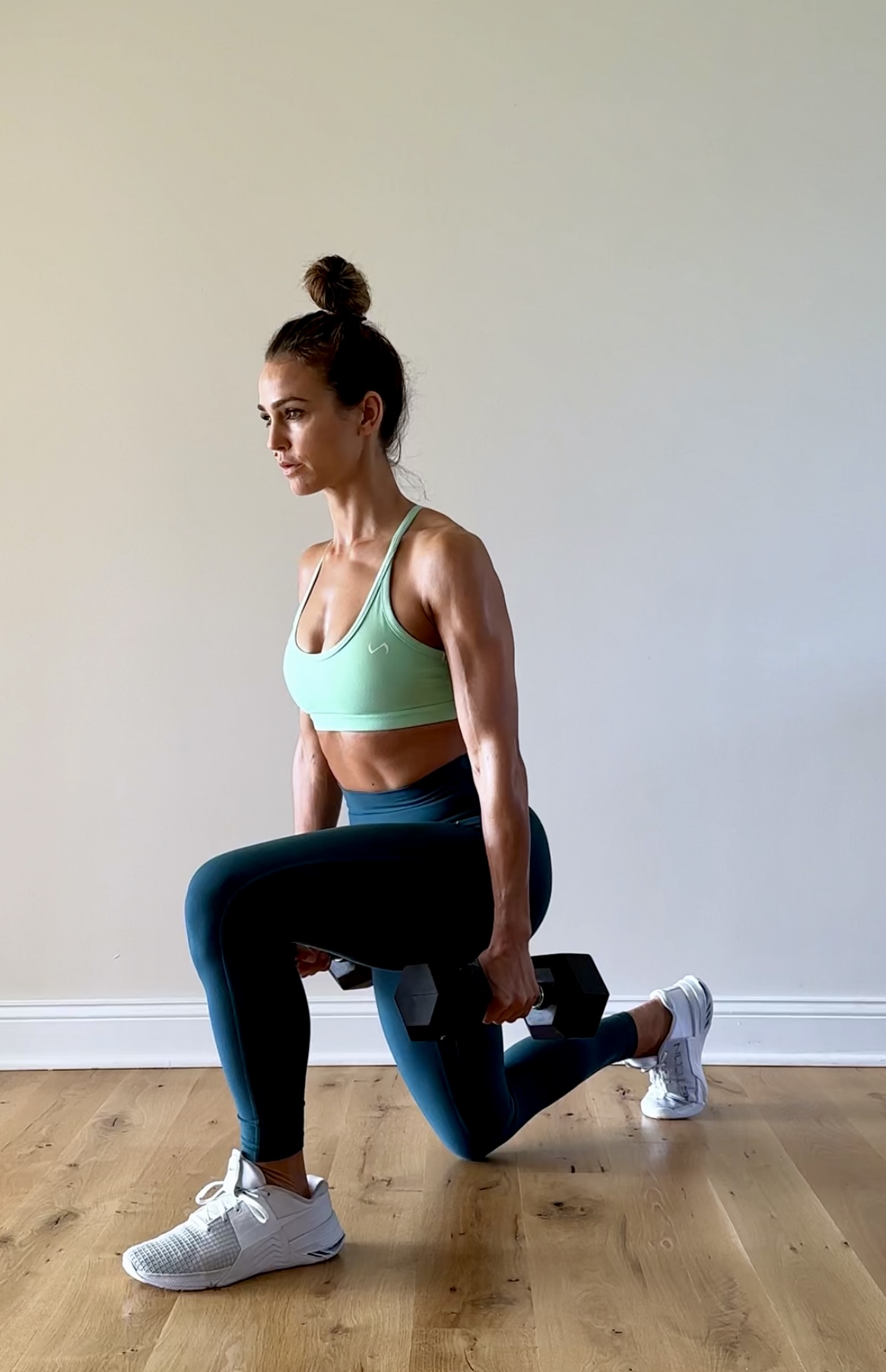
Sets: 3 Reps: 8-12 Rest: 60 seconds
- Lunge forward with your right foot and lower your left knee until both knees roughly form a right angle.
- Keeping your feet where they are, extend your legs and stand up. This is your starting position.
- From here, lower your left knee back to the floor, then drive through your right foot to return to the starting position.
- Complete this for the prescribed number of repetitions then repeat on the other leg.
Benefits of the split squat
The split squat is an example of a unilateral, or one-sided, exercise. By working one leg at a time, it can iron out muscular differences between your left and right side to build a strong and balanced lower body.
"Because the split squat focuses on one leg at a time, it requires more muscle focus and increases muscle activation," Kendter adds. "This helps increase the growth of muscles used for unilateral movements like running and jumping, and improve sport performance more efficiently."
Once you feel comfortable with this exercise, you can make it more difficult by holding a dumbbell in each hand.
5. Glute bridge
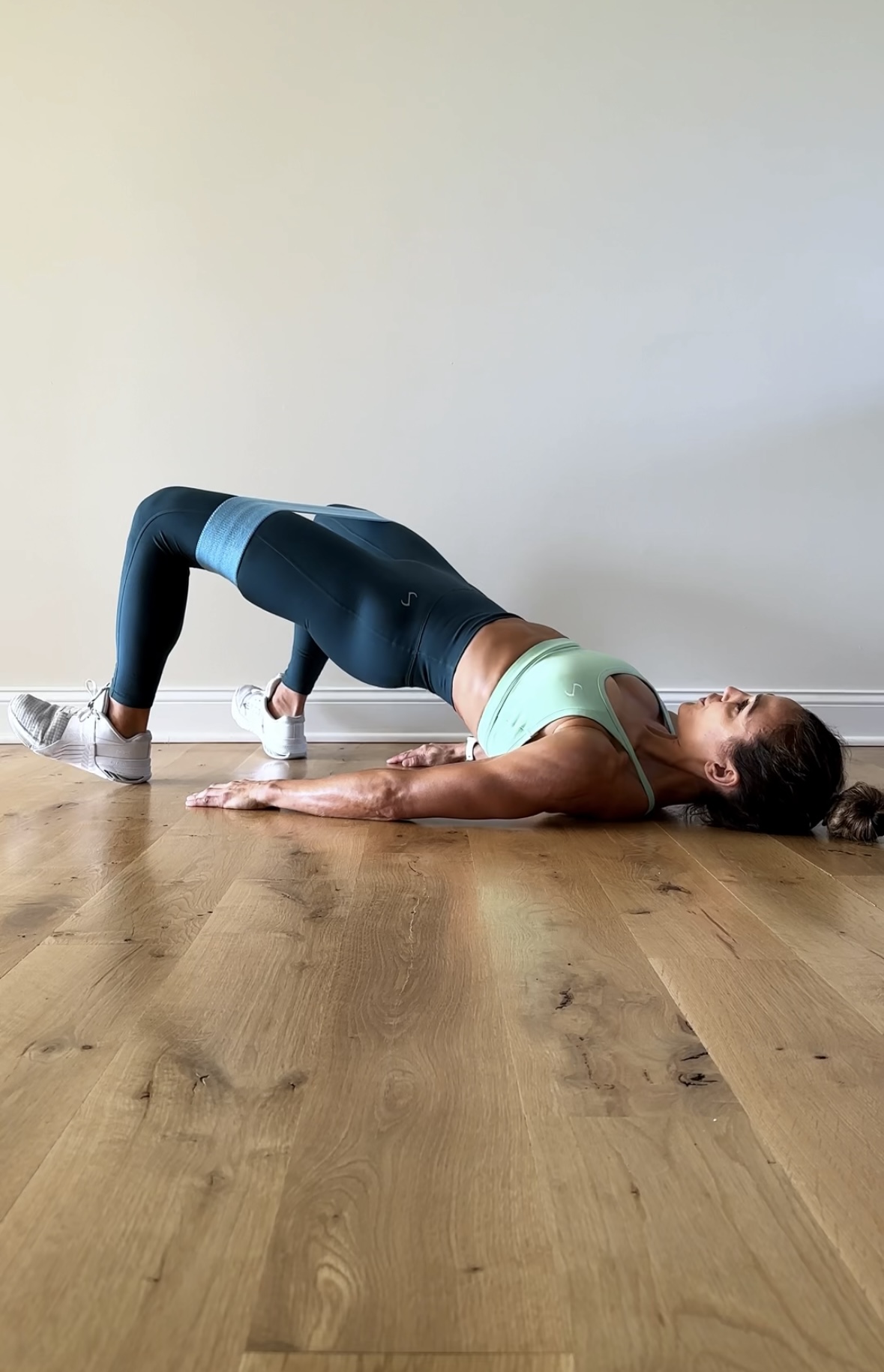
Sets: 3 Reps: 8-12 Rest: 60 seconds
- Lie on your back with your knees bent and your heels on the ground. Your feet should be slightly wider than hip-width apart, and your heels should be roughly six to eight inches away from your glutes.
- Brace your core and lift your hips toward the ceiling until your thighs and torso form a straight line. Squeeze your glutes as tightly as you can in the top position and hold this for a couple seconds.
- Slowly lower your hips back to the floor, keeping tension in the glutes and abs as you do, then repeat.
Benefits of the glute bridge
"The glute bridge is great for glute activation, strength and core stability," says Kendter.
"You can start with your bodyweight, then add a resistance band around your thighs or gradually use heavier dumbbells across your hips."
Need some new weights for your home workout? Our guide to the best adjustable dumbbells can help







